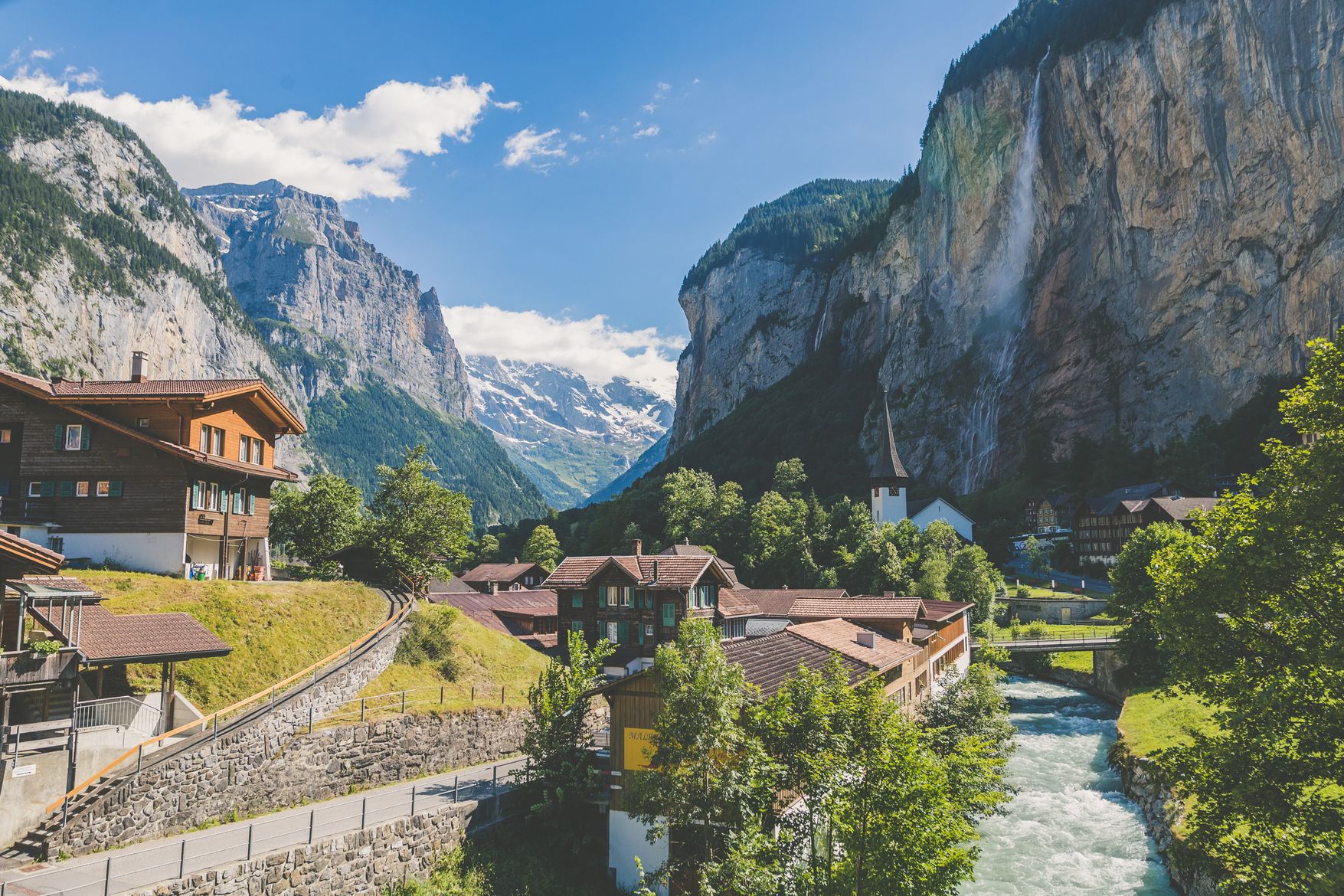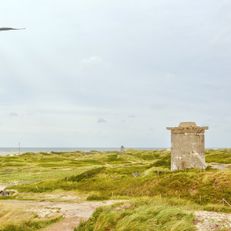Switzerland Traffic Guide
Exploring Switzerland by Car
Although Switzerland has local public transport, those who want to be flexible when travelling usually choose a car for their holiday in Switzerland. In addition, the costs for train tickets and the like are often considerably higher than in neighbouring countries. This makes the car particularly popular in Switzerland.
This guide introduces you to some of the most important traffic rules in Switzerland and explains what you should pay particular attention to on Swiss roads.
Switzerland Traffic Regulations at a Glance
- The minimum age for drivers in Switzerland is 18. Although Switzerland is not part of the European Union, the EU driving licence is recognised as a driving licence.
- Switzerland drives on the right.
- The speed limit within built-up areas is a maximum of 50 kilometres per hour. Often only 30 km/h is permitted here. Outside built-up areas, the speed limit is 80 km/h unless otherwise stated. A speed limit of 100 km/h applies on dual carriageways and 80 km/h in tunnels. On the motorway in Switzerland, you are allowed to drive at a maximum of 120 km/h.
- Speeding is punished particularly severely under the Via Sicura programme. "Speeding" is a criminal offence that can lead to several years' imprisonment and confiscation of the car as a "weapon of crime".
- In Switzerland, seatbelts must also be worn and mobile phones are prohibited at the wheel. In addition, you must also drive with your lights on during the day. Radar detectors may not be used or carried.
- At least one safety waistcoat, a warning triangle and a first aid kit must be carried in the car.
- The blood alcohol limit for drivers is 0.5. Novice drivers who have had their driving licence for less than four years must comply with a 0.0 blood alcohol limit.
- The driver's field of vision must not be obscured. For this reason, navigation systems may not be attached to the windscreen.
- Some special rules also apply to giving way in Switzerland: Rail vehicles have right of way in built-up areas. On mountain roads, the vehicle travelling uphill generally has priority. Heavy motor vehicles such as lorries and buses are an exception. These also have priority downhill over light vehicles such as cars.
Driving in Switzerland
Roads in Switzerland
The roads in Switzerland are in very good condition. The road network is also considered to be particularly dense. In fact, Switzerland's motorway network is one of the densest in the world.

Travelling by car in Switzerland is therefore comparatively easy.
Nevertheless, you should still expect some challenges when driving in Switzerland. For example, you will find steep and sometimes narrow mountain roads in mountainous regions.
The heavy traffic on Swiss roads can also be a problem. The Swiss are not known for a particularly hectic driving style. However, the high volume of traffic can lead to increased traffic jams.
Petrol Stations and Charging Points
Petrol and diesel: petrol stations can be found everywhere in Switzerland. You will find petrol stations open around the clock, especially along the motorways and in the cities. Other petrol stations often offer diesel and petrol at self-service machines outside opening hours.

Electric cars: The network for electric cars in Switzerland is already extensive and new charging points are constantly being added. Currently, the cities and main transport routes are particularly well positioned.
Charging facilities are still less widespread in the countryside. Here you should look for charging points along your route before travelling by electric car.
Hydrogen cars: New hydrogen refuelling stations are also opening regularly in Switzerland. In the north-west, you can already get around easily in a hydrogen car. There are not yet enough hydrogen refuelling stations available in the south.
Rental Car or Own Car ?
Switzerland is easy to reach overland by car from the Central European mainland. Although Switzerland is neither part of the European Union nor the European Economic Area, it is generally possible to enter the country with a vehicle registered in the EU without any problems.
For cars from Germany, the Euro licence plate is theoretically sufficient as a country code and proof of liability insurance. However, it is recommended that you take the International Insurance Card with you and, if necessary, affix the D plate to the car.
Alternatively, you can hire a car from the age of 21. Car hire providers can be found particularly in the major cities, in tourist regions and at airports. Depending on the provider, drivers aged 18 and over may also be able to hire a vehicle. However, higher charges are then usually payable.
Fines
Fines for traffic offences are often levied on the spot by drivers from abroad. Due to the Via Secura programme, which aims to make road traffic safer in Switzerland, fines are higher than average, especially for speeding offences. In addition, offences against the speed limits can be punished with imprisonment of up to four years as well as the withdrawal of the vehicle and driving licence.

Extract from the catalogue of fines:
Exceeding the speed limit (up to 15 km/h too fast): 20 to 250 Swiss francs (CHF) (approx. £18 to £223)
Exceeding the speed limit (from 15 km/h too fast): Report to the police and high fines possible
Violation of the seatbelt requirement: CHF 65 (approx. £58)
Drink driving offence: from CHF 600 (approx. £535)
Red light offence: CHF 250 (approx. £223)
Mobile phone at the wheel: CHF 100 (approx. £89)
Summary: How to Drive in Switzerland
In Switzerland, you can make good progress by car thanks to the extensive motorway network and optimum road quality. On popular routes, however, you should be prepared for increased traffic volumes with traffic jams and, if necessary, allow a little more time for your journey.
► Here you will find more information about toll regulations in Switzerland to help you plan your journey.






